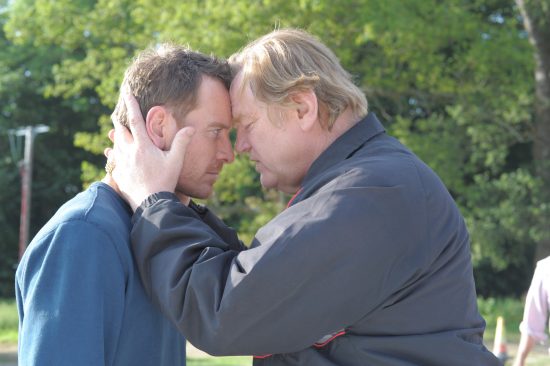Review: Trespass Against Us – “A powerful film that simmers in your mind”
For or those of us who regard cinema as an art of empathy and enlightenment, Trespass Against Us has ample to give. This refreshing, albeit belated, depiction of the travelling community does not steep to the same hyperbole as sensational tabloid reporting, for no one is ever less than human in this film. With its brio, pathos and humour, one cannot help but be reminded of the original Trainspotting (1996), a film that likewise dared to portray a maligned British sub-culture and not shy away from an exciting chase with Her Majesty’s authorities.
And yet, the critical consensus around Adam Smith’s inquisitive directorial debut has displayed precisely the sort of moral judgement that the film asks you to transcend. This is particularly the case across the Atlantic, where a cultural resonance has rather painfully been lost in translation. Critics have made crude complaints of heavy accents, ‘unlikeable’ characters, and put their name to haughty moralism posing as film criticism. To read Owen Glieberman ludicrously compare the film to the work of Ed Wood, and Godfrey Cheshire rhapsodise ignorance for twelve paragraphs on RogerEbert.com, one cannot help but like the film more, and admire its daring attempt to encourage empathy with non-conformist, detested people.
Michael Fassbender plays Chad Cutler, a traveller based in county Gloucestershire. He’s gradually inclined towards an apostasy from his tight community, seeking security for his wife and education for his children. But he faces his father and traditionalist clan patriarch, Colby Cutler (Brendan Gleeson). Gleeson has all the best lines (usually to do with animals – gorilla’s, fish, super-goats) as a religious philistine who cannot stand the idea of biological evolution, never mind the life and law outside his camp, perfectly personified by Rory Kinnear as a cop who see’s the travellers as nothing but scum. Indeed, it may be the law whom audiences find themselves rooting for in Alastair Siddons’ balanced (and vernacular heavy) script that refuses to glamorise or condone. It is rather in the conflicting intersection of personal aspiration, familial loyalty and societal marginalisation that the film finds its drama. This is first and foremost a father-son tale, where an uneasy bond between the figures of past, present and future, three generations of Cutler, are caught in a cultural tug-of-war between the values of nomadic and settled living.
This is a nuanced character drama, supported by several excellent performances. One can debate the logic behind hiring two great Irish thespians in English-accented roles, but great thespians they are – accents are spot-on and each scene is comprised of at least three separate layers of emotional complexity. No matter how many ill-fitting tracksuits and ruffian mannerisms you can impart onto Michael Fassbender, he’s always going to look incongruously handsome. Yet, it would be extraordinarily petty to hold his looks against him; he is a fearless and dedicated actor. When someone can appear within a behemoth like Assassins Creed and follow it up with a low-budget social-realist drama, and make both films feel equally personal, we have an acting talent to savour. He is also extremely funny. Not often given room to make an audience laugh in the sad-eyed anguish he has become adored for, here Fassbender relishes the opportunity for comic-relief, playing a man who simply cannot, will not, engage in a car-chase without a cigarette in his mouth. You get the sense that this is a character most like himself – playful, daring, sometimes childish, and driven. One thing’s for sure: we need to see more of that mammoth grin.
Where the film does fall short is undoubtedly in its clichéd narrative setup; how many times have we seen a man struggling to ‘get out’ a life of crime? What makes this different is its unique setting, and rarely does this shadow superb moments of originality, or the films admirable willingness to offer accessible insight into a corner of the world that many people would rather remain demonised. The film’s terse run-time and narrative exactitude, while effective, may even be counter-productive to showcasing just how rich the film is. That’s the sort of unassuming feature this is – a low-key drama with a simple humanism, in which a desire to see your son go to school, or buy a puppy from a local farm, can oftentimes be the most insurmountable feat when communities have derogatory preconceptions about each other. Trespass Against Us is a film that calls for communication, open minds, open hearts and understanding. It’s a powerful film that simmers in your mind.
Trespass Against Us opens on 3rd March 2017.











